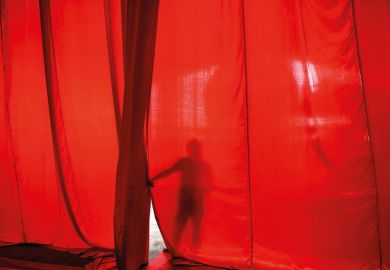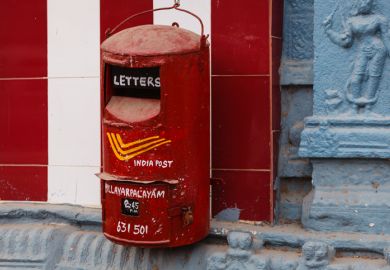A top Indian private institution at the centre of a political storm has reportedly been visited by intelligence agents after a paper by one of its scholars accused the country’s ruling party of meddling in election results.
In the controversy that followed the publication last month of a preprint on “electoral backsliding”, its author, Sabyasachi Das, resigned from his post as an assistant professor at Ashoka University and the university has come under fire from figures on both the left and the right.
Political leaders from the ruling Bharatiya Janata Party (BJP) – and a minority of scholars – have railed against the article; meanwhile, hundreds of researchers have condemned the university for “distancing itself” from Dr Das, expressing concern over academic freedom at Ashoka.
More than 300 academics signed a letter this week denouncing what they called the “forced ‘resignation’” of the scholar and demanding his immediate reinstatement.
“It is clear from [the university’s actions] that what was at stake was not the academic merit of his paper, but the threat it posed to the ruling party,” they said in their letter.
Another petition called on the university to implement a charter to protect academic freedom in India. Separately, Ashoka’s economics and political science faculties threatened walkouts, according to reports.
As well as facing criticism from scholars, the institution is under mounting pressure from the government. According to the national newspaper The Wire, this week officials from India’s Intelligence Bureau visited the campus looking to question Ashoka faculty about Dr Das’ motives.
Aurnab Ghose, a biology and chemistry professor at the Indian Institute of Science Education and Research, Pune, called the episode a “watershed moment” for the sector.
“The Ashoka incident has made it obvious that academic freedom is not a given but has to be actively defended. It is threatened not only by political coercion but also by the neoliberal commodification of higher education,” he said.
Professor Ghose said that there have been other instances of “arbitrary” and seemingly “pre-emptive” censoring of academics by their institutions in recent months, but that those have been around views expressed in class or in public rather than a “tangible piece of scholarship”. Ashoka’s high-profile status has also made this case more visible, he believed.
Even if Ashoka reinstates Dr Das, recent events have revealed the “extreme unease of Indian institutions to even appear to be critical” of the government, he said.
Saikat Majumdar, a professor of English and creative writing at Ashoka, said he was “very heartened” by academics’ vocal support for Dr Das, but he too was worried about the broader implications of the incident – including for the university’s reputation. The furore will have served as a wake-up call to scholars, he said, revealing just how dependent Indian institutions are on the government for support.
He also feared that the controversy would “deeply harm the progress of this new university”, including its ability to attract top international scholars.
“My big worry is…for those who might have considered this an attractive place to work, say junior economists on the job market; their enthusiasm will be seriously dampened.”
Commenting last week about the controversy, Ashoka said it was “dismayed by the speculation and debate” around the article and its position. This week, its vice-chancellor said administrators were looking for “long-term solutions [to] reinforce…academic freedom” at the institution, and reassured students that the coming academic semester was on track.
THE contacted Ashoka University for further comment.
Register to continue
Why register?
- Registration is free and only takes a moment
- Once registered, you can read 3 articles a month
- Sign up for our newsletter
Subscribe
Or subscribe for unlimited access to:
- Unlimited access to news, views, insights & reviews
- Digital editions
- Digital access to THE’s university and college rankings analysis
Already registered or a current subscriber?








